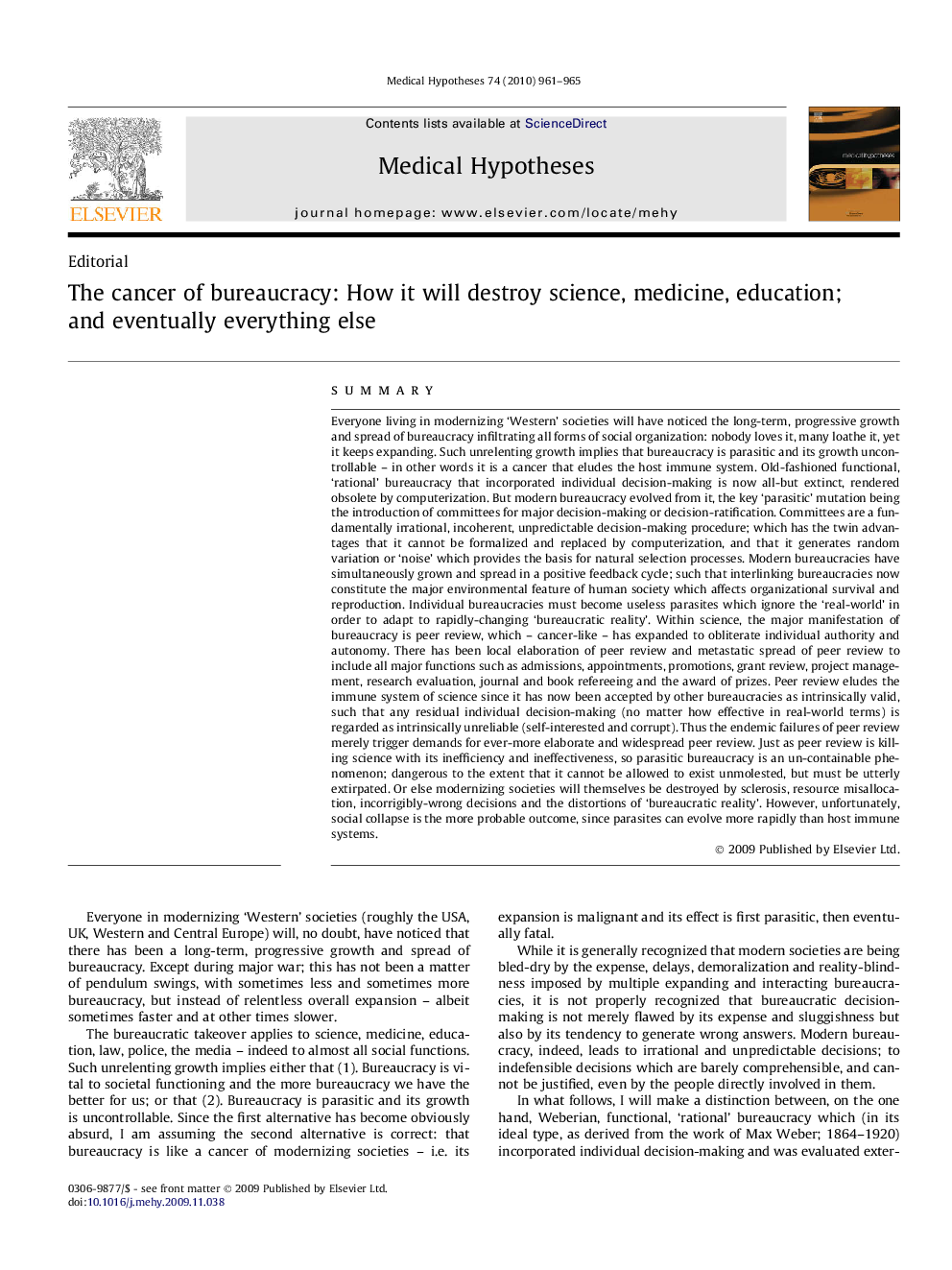| کد مقاله | کد نشریه | سال انتشار | مقاله انگلیسی | نسخه تمام متن |
|---|---|---|---|---|
| 2489770 | 1115053 | 2010 | 5 صفحه PDF | دانلود رایگان |

SummaryEveryone living in modernizing ‘Western’ societies will have noticed the long-term, progressive growth and spread of bureaucracy infiltrating all forms of social organization: nobody loves it, many loathe it, yet it keeps expanding. Such unrelenting growth implies that bureaucracy is parasitic and its growth uncontrollable – in other words it is a cancer that eludes the host immune system. Old-fashioned functional, ‘rational’ bureaucracy that incorporated individual decision-making is now all-but extinct, rendered obsolete by computerization. But modern bureaucracy evolved from it, the key ‘parasitic’ mutation being the introduction of committees for major decision-making or decision-ratification. Committees are a fundamentally irrational, incoherent, unpredictable decision-making procedure; which has the twin advantages that it cannot be formalized and replaced by computerization, and that it generates random variation or ‘noise’ which provides the basis for natural selection processes. Modern bureaucracies have simultaneously grown and spread in a positive feedback cycle; such that interlinking bureaucracies now constitute the major environmental feature of human society which affects organizational survival and reproduction. Individual bureaucracies must become useless parasites which ignore the ‘real-world’ in order to adapt to rapidly-changing ‘bureaucratic reality’. Within science, the major manifestation of bureaucracy is peer review, which – cancer-like – has expanded to obliterate individual authority and autonomy. There has been local elaboration of peer review and metastatic spread of peer review to include all major functions such as admissions, appointments, promotions, grant review, project management, research evaluation, journal and book refereeing and the award of prizes. Peer review eludes the immune system of science since it has now been accepted by other bureaucracies as intrinsically valid, such that any residual individual decision-making (no matter how effective in real-world terms) is regarded as intrinsically unreliable (self-interested and corrupt). Thus the endemic failures of peer review merely trigger demands for ever-more elaborate and widespread peer review. Just as peer review is killing science with its inefficiency and ineffectiveness, so parasitic bureaucracy is an un-containable phenomenon; dangerous to the extent that it cannot be allowed to exist unmolested, but must be utterly extirpated. Or else modernizing societies will themselves be destroyed by sclerosis, resource misallocation, incorrigibly-wrong decisions and the distortions of ‘bureaucratic reality’. However, unfortunately, social collapse is the more probable outcome, since parasites can evolve more rapidly than host immune systems.
Journal: Medical Hypotheses - Volume 74, Issue 6, June 2010, Pages 961–965